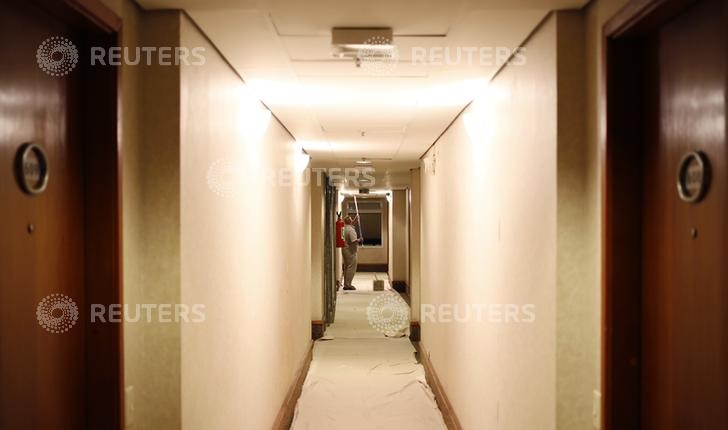By Herbert Lash
NEW YORK (Reuters) - Steadily expanding demand, in line with a moderately growing U.S. economy and a still low rate of new room construction, bodes well for the U.S. hotel industry in the near term, leading executives in the business said on Monday.
A surge in deals for U.S. hotels, driven in part by Chinese money seeking investment abroad, has led to worries of a market that might be getting expensive. Sales volume was up 81 percent to $13.3 billion in the first four months of the year in the Americas, driven by U.S. deals, according to Jones Lang LaSalle.
The notion of an overheating market is not merited, a bevy of speakers at New York University's International Hospitality Industry Investment Conference said on Monday.
"Are we near the end? We would say no," said Jonathan Gray, global head of real estate at private equity firm Blackstone Group (N:BX). "The hotel business should do pretty well in this environment."
The U.S. hotel industry will experience "exceptionally good years" in the near term as the increase in new construction stays below historic norms, said Chris Nassetta, president and chief executive of Hilton Worldwide (N:HLT).
Growth in hotel rooms over existing supply was 1 percent last year and will likely be slightly above that this year, Nassetta said. An industry decline typically does not occur until new supply reaches 4 percent or higher, he said.
"The next few years are going to be exceptionally good years in this business, amongst the best years that we've seen," Nassetta said. "It's the simple laws of economics at work. While supply is inching a little bit, it's at historically low levels."
An examination of new construction that's in the pipeline when compared to the last big cycle in the 1990s is enough to show the current cycle has a long way to run, said Geoff Ballotti, president and CEO of Wyndham Hotel Group, a unit of Wyndham Worldwide Corp (N:WYN).
"In terms of cycle, we're in month 57, and it's feeling more and more like the cycle that began in 1992 and ended in 2000," Ballotti said.
One speaker said signs of a downturn can be seen.
Interest rates will rise and cap rates, a valuation metric in commercial real estate, will start to fall, said Barry Sternlicht, chairman and CEO of Starwood Capital Group.

"The market is going to invert. I think we should be prepared for it," Sternlicht said.